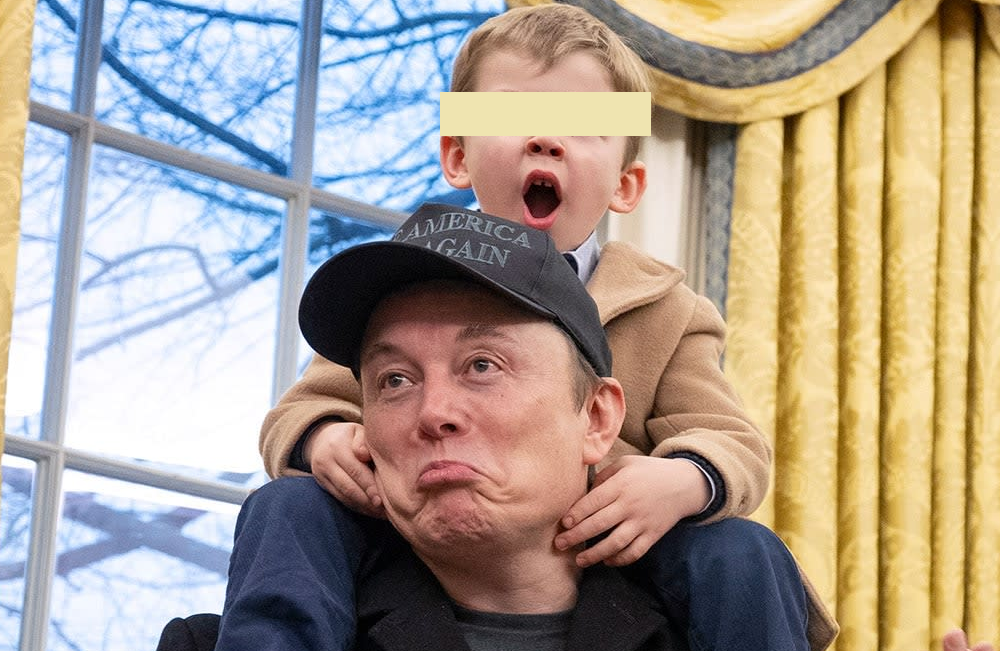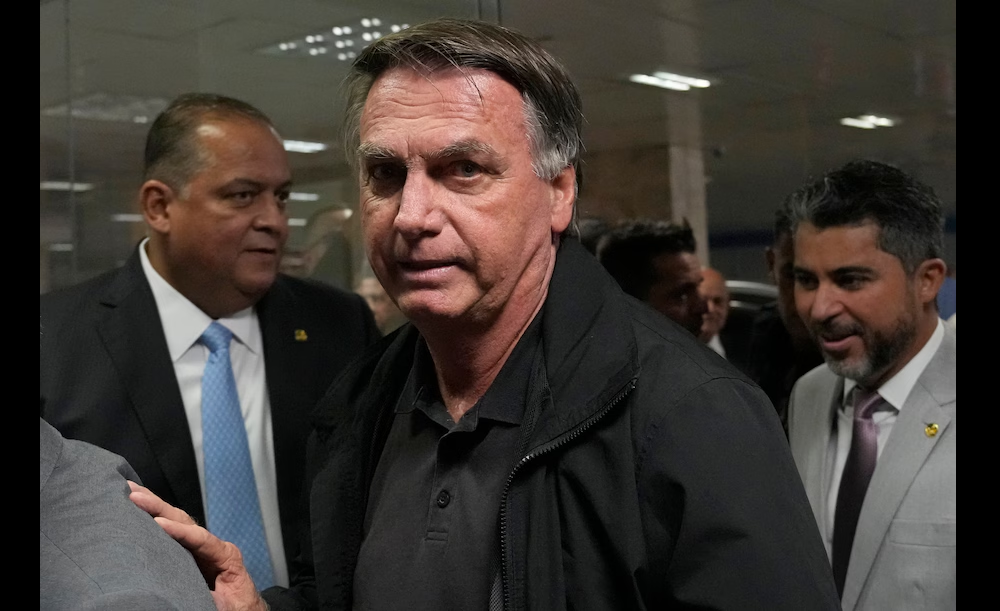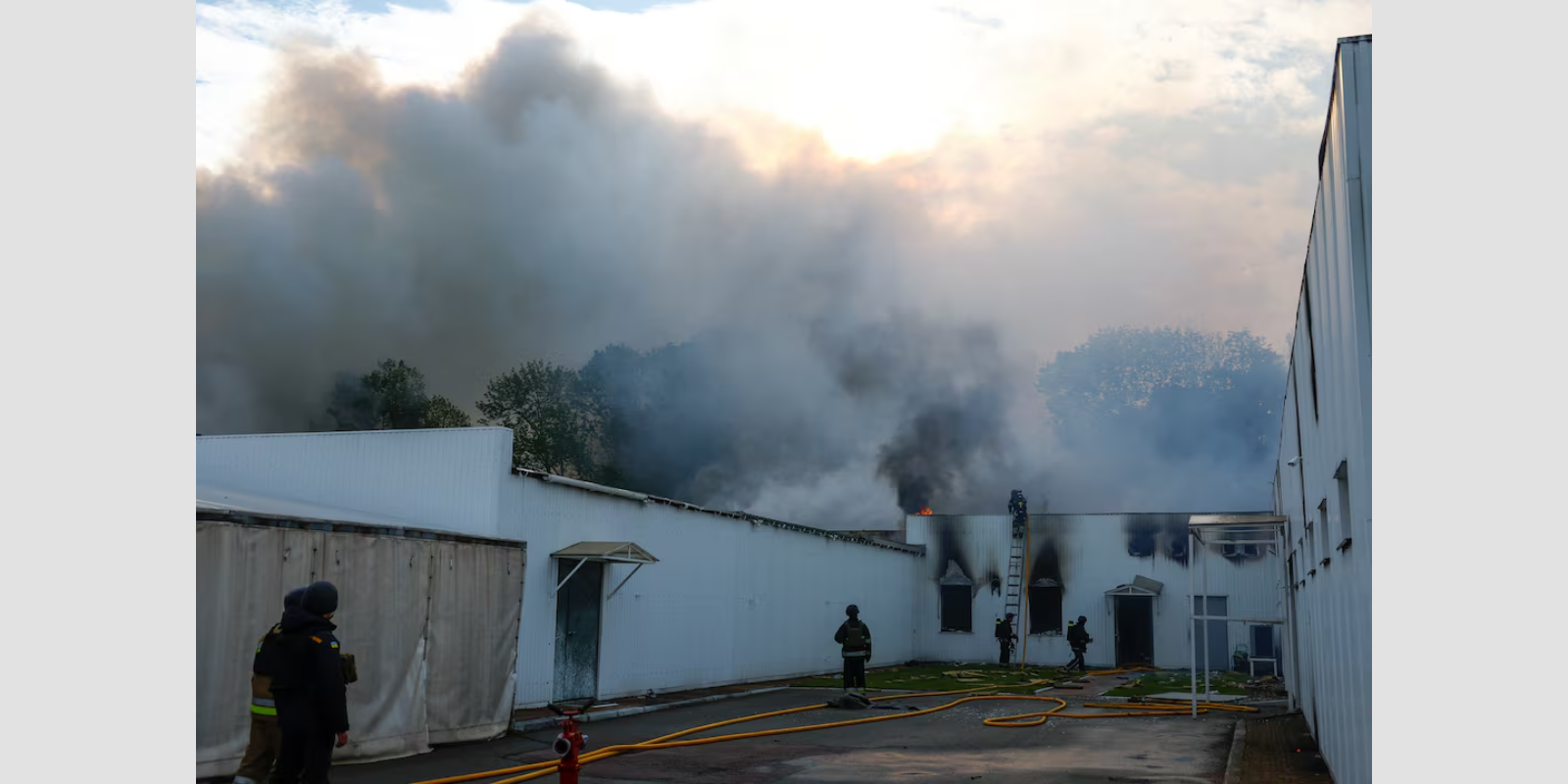Freedom Flotilla and Thousand Madleens refuse to stop sailing to Gaza
CANARY by Skwawkbox 2 October 2025
The Freedom Flotilla Coalition (FFC), which has sent humanitarian vessels on earlier attempts to reach Gaza with aid, and the new Thousand Madleens mass group of boats – named after one of the FFC vessels attacked and seized by Israel – have said they will not stop sailing to Gaza, despite Israel’s mass, criminal attack on the Gaza Sumud Flotilla’s fifty ships and their volunteer crews on Wednesday night.
In a joint statement, the groups said:
Israel has illegally attacked the Global Sumud Flotilla, sailing to challenge Israel’s illegal blockade of Gaza. Communications have gone dark, cameras are offline and the flotilla’s boats are being boarded by armed and masked commando forces. This is yet another breach of international law – an attempt to silence those who dare confront Israel’s genocide of the Palestinian people, while governments shield Israel with diplomatic cover and military aid.
We name this for what it is: impunity, made possible by political cowardice and complicity.
The Freedom Flotilla Coalition and Thousand Madleens to Gaza stand firmly in solidarity with the Global Sumud Flotilla and every human rights defender aboard. Their actions are part of a collective refusal to accept the siege of Gaza as normal. Their presence on those boats is a reminder that silence is not an option, and that people across the world are choosing to act.
We will not stop.
We will keep sailing.
We will continue challenging Israel’s illegal blockade.
We will keep confronting genocide, apartheid, occupation, and mass starvation— until Gaza is free, and justice is no longer a dream but reality.
Israel’s interception of the Gaza aid flotilla is a clear violation of international law
The Israel Defence Force has intercepted a flotilla of humanitarian vessels seeking to deliver aid to Gaza, taking control of multiple vessels and arresting activists, including Greta Thunberg.
The interceptions took place in the Mediterranean Sea between 70-80 nautical miles off the Gazan coast. These are international waters where international law recognises high seas freedom of navigation for all vessels.
Israel has countered by arguing it has a maritime blockade which prohibits entry to Gaza by foreign vessels. Israel has also suggested the flotilla was supported by Hamas – an assertion the flotilla organisers have rejected.
Gaza humanitarian aid flotillas
The Global Sumud Flotilla was comprised of more than 40 boats carrying humanitarian aid (food, medical supplies and other essential items), along with several hundred parliamentarians, lawyers and activists from dozens of countries.
The flotilla departed Spain in late August and has been making its way eastwards across the sea, with stops in Tunisia, Italy and Greece. Along the way, the Italian and Spanish governments deployed naval escorts to ensure their safe passage.
Passengers on the boats alleged they had been harassed by drones at mulitple points in the voyage.
This flotilla campaign is the latest iteration of a movement that has existed for over 15 years to challenge Israel’s long-running blockade of the Gaza Strip.
Earlier this year, a ship called the Conscience carrying activists and aid bound for Gaza was hit by explosions off the coast of Malta.
Israel then intercepted the Madleen, with Thunberg and other activists on board, in June, and the Handala in July.
And in 2010, a flotilla tried to reach Gaza carrying humanitarian relief and hundreds of activists. Israeli commandos boarded the Turkish-flagged Mavi Marmara, leading to a violent confrontation that resulted in the deaths of ten activists. The deaths drew widespread condemnation and strained Israeli-Turkish ties for years.
The legality of Gaza’s naval blockade
The international law related to the actions of the flotilla vessels and Israel’s capacity to intervene is complex.
Israel has imposed blockades of Gaza in various forms for nearly 20 years.
The legal basis for the blockades and their consistency with international law, particularly the law of the sea, has been contentious, which was highlighted during a UN inquiry that followed the Mavi Marmara incident.
While Israel’s legal relationship with Gaza has varied during this time, Israel is now considered an occupying power in Gaza under international law.
The roles of occupying powers were codified in the Fourth Geneva Convention in 1949 and built upon the legal obligations that Allied powers assumed in Germany and Japan at the end of the second world war. The Geneva Convention outlines the clear legal framework for occupying powers.
In recent decades, Israel has been both a de jure (recognised under the law) and de facto occupying power in Palestine.
In 2024, the International Court of Justice ruled Israel’s occupation of the Palestinian territories was illegal under international law.
As an occupying power, Israel controls all access to Gaza whether by land, air or sea. Aid trucks are only permitted to enter Gaza under strict controls. Foreign air force aid drops that have occurred in recent months have only been permitted under strict Israeli control, as well.
Very little aid has arrived by sea since the war began because Israel has severely restricted maritime access to Gaza. The United States built a floating pier off the coast to deliver aid in 2024, but this was soon abandoned because of weather, security and technical issues.
This clearly indicated, however, that Israel was prepared to permit the flow of maritime aid from its closest ally, the US. This exception to the blockade was not applied to other humanitarian actors.
Intercepting ships in international waters
While delivery of aid by sea is legally problematic at the moment, there are limits to Israel’s ability to disrupt flotillas. The freedom of navigation is central to the law of the sea. As such, the flotilla is entitled to sail unimpeded in the Mediterranean Sea.
Any harassment or stopping of the flotilla within the Mediterranean’s international waters is therefore a clear violation of international law.
Crucial to this is the actual location where Israeli forces intercept and board flotilla vessels.
Israel can certainly exercise control over the 12 nautical mile territorial sea off Gaza’s shores. Its closure of the territorial sea to foreign vessels would be justified under international law as a security measure, as well as to ensure the safety of neutral vessels due to the ongoing war.
Flotilla organisers said their ships were intercepted between 70 to 80 nautical miles from shore, well beyond Gaza’s territorial sea.
No doubt this was done for operational reasons. The closer the flotilla came to the Gazan coast, the more difficult it would be for the Israel Defence Force to successfully intercept each ship, raising the possibility that at least one vessel may make landfall.
Scores of activists onboard the ships have reportedly been detained and will be taken into custody in the Israeli port of Ashdod. They will then likely be quickly deported.
The activists have protections under international human rights law, as well, including access to foreign diplomats exercising consular protection for their citizens.
Mass global protests erupt over Israel’s interception of Gaza aid Flotilla
Activists including Greta Thunberg were detained as worldwide demonstrations call for humanitarian aid, accountability, and an end to the Gaza blockade.
)
Israel’s Gaza Flotilla raid: Anger against Netanyahu mounts; protests rock Italy, France, Germany
Mass protests erupted worldwide following Israel’s interception of the Gaza aid flotilla, spreading across Europe, Turkey, South America, and beyond.
The operation, which led to the detention of activists including climate campaigner Greta Thunberg, deprived Gaza’s besieged population of critical aid amid famine conditions reported by the United Nations.
Demonstrators accused Israel of aggression, demanded the release of detained activists, and criticised Western and national governments for complicity.
The protests saw railway blockades, clashes with police, and union-backed strikes, reflecting growing global pressure on Israel and calls for urgent humanitarian aid for Gaza.
Protesters rallied against Israel's interception of the Global Sumud Flotilla, which left Gaza’s besieged population without aid amid famine conditions reported by the United Nations.
The flotilla comprised 41 vessels carrying over 400 people, including politicians and activists like Thunberg, all stopped by the Israeli navy. In Barcelona, around 15,000 people marched chanting slogans like “Gaza, you are not alone,” “Boycott Israel,” and “Freedom for Palestine,” with riot police intervening when protesters attempted to climb barriers.
Former Barcelona mayor Ada Colau and activists, including Nelson Mandela’s grandson Mandla Mandela, faced deportation after trying to sail with the flotilla.
Protests also took place in Dublin, Paris, Marseille, Berlin, The Hague, Tunis, Brasilia, Buenos Aires, Rome, Milan, Torino, Florence, Bologna, Istanbul, Brussels, Geneva, Athens, and Kuala Lumpur, showing global outrage over Israel’s actions.
Demonstrators called for the release of flotilla members, halting financial and academic ties with Israel, and protection for civilians in Gaza, highlighting mounting international pressure for accountability and humanitarian relief.












